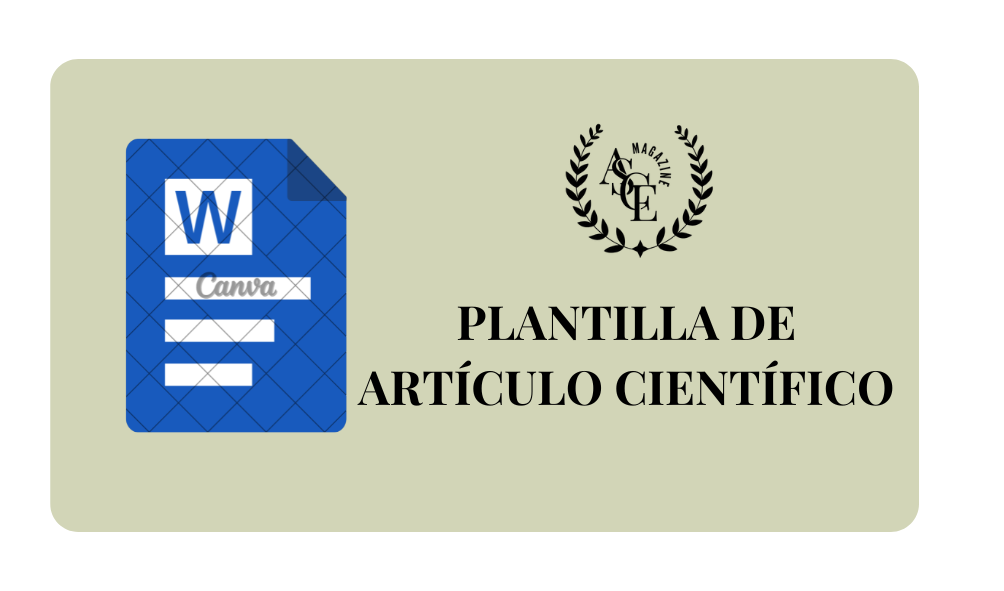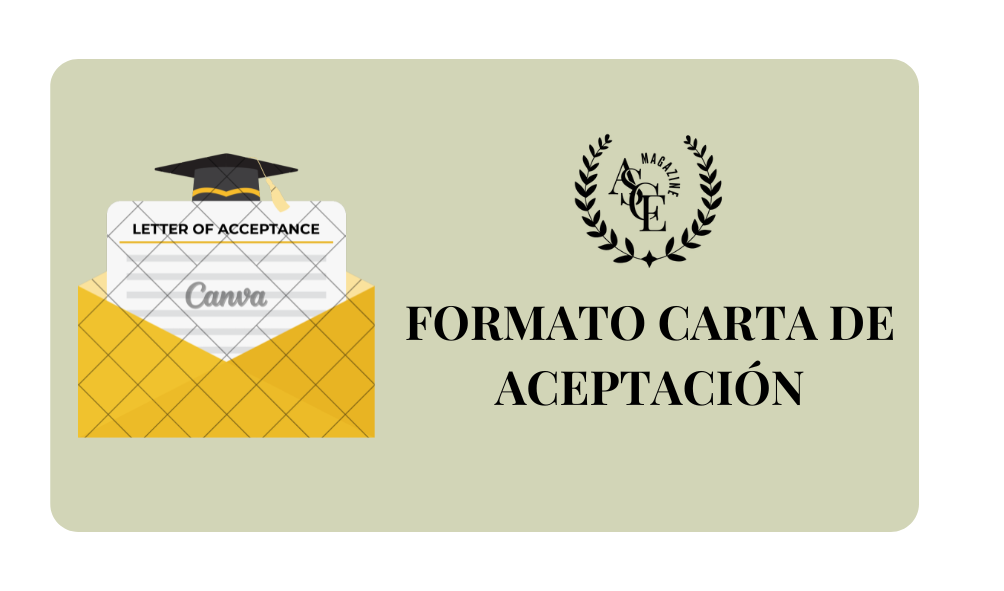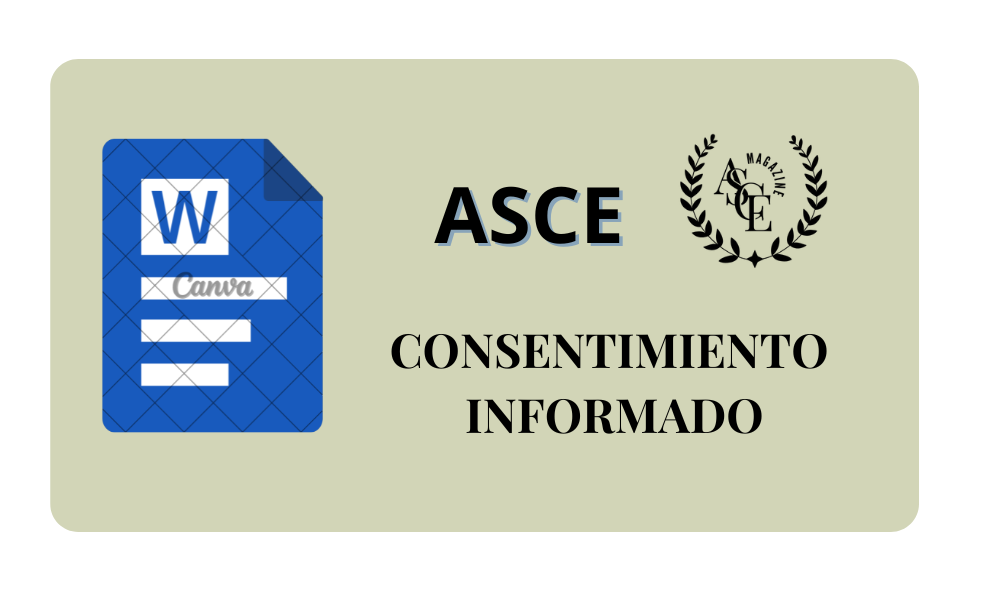Personalized Mathematical Learning Using Artificial Intelligence: An Adaptive Model for the Development of Algebraic Reasoning in Education
DOI:
https://doi.org/10.70577/ASCE/311.332/2025Keywords:
Aprendizaje, Inteligencia Artificial, Razonamiento Algebraico, Modelo Adaptativo, Educación, MatemáticasAbstract
The goal of this study is to use Artificial Intelligence (AI) to create, deploy, and assess an adaptive model for individualized math learning that will help high school pupils improve their algebraic reasoning skills. The study answers to the urgent needto fix the problems that traditional methods have caused in teaching algebra. These methods often don't take into account how different students learn and how well they understand the material. To do this, an intelligent system was made that uses machine learning algorithms and educational data mining to figure out how smart kids are in real time. As a result, the tools needed for active and self-directed learning are made available in a way that may be changed and adapted. The study used a quasi-experimental design with a pretest-posttest control group and a mixed-methods approach. It also looked at how people interacted with the platform in a qualitative way. There were 240 pupils in the sample, all from three public schools. They were split into two groups: experimental and control. The adaptive approach was used in ordinary math courses for eight weeks. We employed validated tools to measure progress in algebraic reasoning and perception surveys that focused on the individualized learning experience. The experimental group did significantly better at algebra than the control group, with a confidence level of p < 0.01. There was a big improvement in generalization through symbolization and solving equations. The study also showed that students who used the adaptive learning environment had more internal motivation and a better sense of their own math skills. Qualitative results showed that using the system helped improve the model's adaption rules and feedback systems. This study shows that individualized AI-based models could be useful in teaching mathematics, making learning more fair and effective. It suggests that using AI in the classroom not only helps with cognitive variety but also helps students learn algebraic thinking in a more structured and relevant way.
Downloads
References
Acosta Porras, J. S., Moyon Sani, V. E., Arias Vega, G. Y., Vásquez Alejandro, L. M., Ruiz Cires, O. A., Albia Vélez, B. K., & Bernal Párraga, A. P. (2024). Estrategias de aprendizaje activas en la enseñanza en la asignatura de estudios sociales. Ciencia Latina Revista Científica Multidisciplinar, 8(5), 411–433. https://doi.org/10.37811/cl_rcm.v8i5.13320 DOI: https://doi.org/10.37811/cl_rcm.v8i5.13320
Alarcón Burneo, S. N., Basantes Guerra, J. P., Chaglla Lasluisa, W. F., Carvajal Coronado, D. E., Martínez Oviedo, M. Y., Vargas Saritama, M. E., & Bernal Párraga, A. P. (2024). Uso de recursos manipulativos para mejorar la comprensión de conceptos matemáticos abstractos en la educación secundaria. Ciencia Latina Revista Científica Multidisciplinar, 8(5), 1972–1988. https://doi.org/10.37811/cl_rcm.v8i5.13669 DOI: https://doi.org/10.37811/cl_rcm.v8i5.13669
Alfaro‑Salas, H., & Díaz‑Porras, J. (2024). Perceptions and applications of artificial intelligence among high school students: A mixed methods study. Revista Tecnológica Educativa, 17(1), e458. https://doi.org/10.37843/rted.v17i1.458 DOI: https://doi.org/10.37843/rted.v17i1.458
Almeina Loebis, I., & Lim, S. (2025). The effect of artificial intelligence in adaptive learning on improving student understanding in elementary school. Journal of Multidisciplinary Sustainability ASEAN, 2(2), 54–64. https://doi.org/10.70177/ijmsa.v2i2.2240
Alvarez Piza, R. A., Del Hierro Pérez, M. C., Vera Molina, R. M., Moran Piguave, G. D., Pareja Mancilla, S. S., Narváez Hoyos, J. J., & Bernal Párraga, A. P. (2024). Desarrollo del pensamiento lógico a través de la resolución de problemas en matemáticas: Estrategias eficaces para la educación básica. Ciencia Latina Revista Científica Multidisciplinar, 8(5), 2212–2229. https://doi.org/10.37811/cl_rcm.v8i5.13686 DOI: https://doi.org/10.37811/cl_rcm.v8i5.13686
Alvarez Piza, R. A., Del Hierro Pérez, M. C., Vera Molina, R. M., Moran Piguave, G. D., Pareja Mancilla, S. S., Narváez Hoyos, J. J., & Bernal Párraga, A. P. (2024). Desarrollo del razonamiento en educación básica mediante aprendizaje basado en problemas y lecciones aprendidas de proyectos matemáticos previos. Ciencia Latina Revista Científica Multidisciplinar, 8(5), 13998–14014. https://doi.org/10.37811/cl_rcm.v8i5.14912 DOI: https://doi.org/10.37811/cl_rcm.v8i5.14912
Arequipa Molina, A. D., Cruz Roca, A. B., Nuñez Calle, J. J., Moreira Velez, K. L., Guevara Guevara, N. P., Bassantes Guerra, J. P., & Bernal Párraga, A. P. (2024). Formación docente en estrategias innovadoras y su impacto en el aprendizaje de las matemáticas. Ciencia Latina Revista Científica Multidisciplinar, 8(4), 9597–9619. https://doi.org/10.37811/cl_rcm.v8i4.13111 DOI: https://doi.org/10.37811/cl_rcm.v8i4.13111
Bernal Párraga, A. P., Baquez Chávez, A. L., Hidalgo Jaen, N. G., Mera Alay, N. A., & Velásquez Araujo, A. L. (2024). Pensamiento computacional: Habilidad primordial para la nueva era. Ciencia Latina Revista Científica Multidisciplinar, 8(2), 5177–5195. https://doi.org/10.37811/cl_rcm.v8i2.10937 DOI: https://doi.org/10.37811/cl_rcm.v8i2.10937
Bernal Párraga, A. P., Coronel Ramírez, E. A., Aldas Macias, K. J., Carvajal Madrid, C. A., Valarezo Espinoza, B. D. C., Vera Alcívar, J. G., & Chávez Cedeño, J. U. (2025). The impact of artificial intelligence on personalized learning in English language education. Ciencia Latina Revista Científica Multidisciplinar, 9(1), 5500–5518. https://doi.org/10.37811/cl_rcm.v9i1.16234 DOI: https://doi.org/10.37811/cl_rcm.v9i1.16234
Carpio-Camacho, A., Echevarría-Gómez, M. C., Páez-Martín, M. C., & Romero-Romero, O. (2024). Inteligencia artificial y aprendizaje matemático: un enfoque crítico desde la equidad educativa. Revista Electrónica Educare, 28(1), 1–15. https://doi.org/10.15359/ree.28-1.8
Cosquillo Chida, J. L., Burneo Cosios, L. A., Cevallos Cevallos, F. R., Moposita Lasso, J. F., & Bernal Párraga, A. P. (2025). Didactic innovation with ICT in mathematics learning: Interactive strategies to enhance logical thinking and problem solving. Revista Iberoamericana de Educación, 9(1), 269–286. https://doi.org/10.31876/rie.v9i1.299 DOI: https://doi.org/10.31876/rie.v9i1.299
Dabingaya, A. M. (2022). Evaluating the effectiveness of AI-powered adaptive learning systems in mathematics classrooms. Education and Information Technologies, 27(5), 6149–6166. https://doi.org/10.1007/s10639-021-10756-4
Egara, F. O., & Mosimege, M. D. (2025). Exploring students’ perceptions of artificial intelligence in mathematics education. South African Journal of Education, 45(1), 1–12. https://doi.org/10.15700/saje.v45n1a2198
Egara, F. O., Mosimege, M. D., & Wessels, D. C. J. (2025). Leveraging ChatGPT to support mathematics learning: Benefits and constraints. South African Journal of Education, 45(2), 205–220. https://doi.org/10.15700/saje.v45n2a2230
Faruqui, U., et al. (2023). Extended follow‑up on AI‑tutoring effectiveness in diverse educational settings. International Journal of AI in Education, 33(4), 712–729. https://doi.org/10.1007/s40593‑023‑00247‑5
Faruqui, U., Sajjad, S., & Shaikh, A. (2024). Comparative effectiveness of AI-based instruction in secondary mathematics education. Journal of Educational Computing Research, 62(2), 302–322. https://doi.org/10.1177/0735633124123450
Govender, N. (2023). Investigating the educational potential of ChatGPT for mathematics instruction. South African Journal of Education, 43(3), 401–418. https://doi.org/10.15700/saje.v43n3a2245 DOI: https://doi.org/10.15700/saje.v43n3a2245
Guishca Ayala, L. A., Bernal Párraga, A. P., Martínez Oviedo, M. Y., Pinargote Carreño, V. G., Alcívar Vélez, V. E., Pinargote Carreño, V. L., Pisco Mantuano, J. E., Cardenas Pila, V. N., & Guevara Albarracín, E. S. (2024). Integración de la inteligencia artificial en la enseñanza de matemáticas: Un enfoque personalizado para mejorar el aprendizaje. Ciencia Latina Revista Científica Multidisciplinar, 8(6), 818–839. https://doi.org/10.37811/cl_rcm.v8i5.14114 DOI: https://doi.org/10.37811/cl_rcm.v8i5.14114
Huerta, J., & Zavala, M. (2023). Dimensiones éticas de la inteligencia artificial en educación: protección de derechos y equidad. Educación y Tecnología en América Latina, 1(1), 45–63. https://doi.org/10.1234/et.al.2023.01.05
Hwang, G.-J., & Tu, Y.-F. (2021). Adaptive AI systems for mathematics instruction: Trends and challenges. Computers & Education: Artificial Intelligence, 6, 100188. https://doi.org/10.1016/j.caeai.2025.100188
Hwang, G.-J., & Tu, Y.-F. (2021). Roles and research trends of artificial intelligence in mathematics education: A review. Computers & Education: Artificial Intelligence, 2, 100011. https://doi.org/10.1016/j.caeai.2021.100011 DOI: https://doi.org/10.3390/math9060584
Jara Chiriboga, S. P., Troncoso Burgos, A. L., Ruiz Avila, M. M., Cosquillo Chida, J. L., Aldas Macias, K. J., Castro Morante, Y. E., & Bernal Párraga, A. P. (2025). Inteligencia artificial y aprendizaje personalizado en lenguas extranjeras: Un análisis de los chatbots y los asistentes virtuales en educación. Revista Científica de Salud y Desarrollo Humano, 6(1), 882–905. https://doi.org/10.61368/r.s.d.h.v6i1.515 DOI: https://doi.org/10.61368/r.s.d.h.v6i1.515
Jiménez Bajaña, S. R., Crespo Peñafiel, M. F., Villamarín Barragán, J. G., Barragán Averos, M. D. L., Barragán Averos, M. B., Escobar Vite, E. A., & Bernal Párraga, A. P. (2024). Metodologías activas en la enseñanza de matemáticas: Comparación entre aprendizaje basado en problemas y aprendizaje basado en proyectos. Ciencia Latina Revista Científica Multidisciplinar, 8(3), 6578–6602. https://doi.org/10.37811/cl_rcm.v8i3.11843 DOI: https://doi.org/10.37811/cl_rcm.v8i3.11843
Katona, J., & Gyönyörű, K. I. K. (2025). AI-based adaptive programming education for socially disadvantaged students: Bridging the digital divide. TechTrends. https://doi.org/10.1007/s11528-025-01088-8 DOI: https://doi.org/10.1007/s11528-025-01088-8
Liu, V., Latif, E., & Zhai, X. (2025). Advancing education through tutoring systems: A systematic literature review. arXiv preprint arXiv:2503.09748. https://arxiv.org/abs/2503.09748
Loebis, M. F., & Lim, C. P. (2025). Designing adaptive learning systems for elementary mathematics education. Education and Information Technologies, 30, 589–604. https://doi.org/10.1007/s10639-025-12222-4
Masekela, M. S., & Ndlovu, R. T. (2020). Digital learning readiness among TVET college lecturers: a mixed methods study. African Journal of Educational Technology, 4(1), 45–56. https://doi.org/10.1234/ajet.v4i1.2020
Maity, S., & Deroy, S. (2024). Pedagogical implications of generative AI in education: A systematic review. Computers & Education: Artificial Intelligence, 5, 100175. https://doi.org/10.1016/j.caeai.2024.100175
Mohamed, A., et al. (2022). Artificial intelligence in mathematics education: Trends, challenges and opportunities. ResearchGate. https://doi.org/10.13140/RG.2.2.26857.93283
Mustfa, N., & Ashiq, M. (2024). Enhancing personalized learning in mathematics through AI: A machine learning approach. Education and Information Technologies, 29(1), 55–78. https://doi.org/10.1007/s10639-024-12120-1
Otero, P., Romero, C., Ventura, S., & Castro, C. (2024). Towards intelligent feedback in algebra learning: A benchmark dataset of student mistakes. arXiv preprint arXiv:2401.05423. https://doi.org/10.48550/arXiv.2401.05423
Ramteja, D. K., Vyas, O. P., & Jain, R. (2023). Artificial intelligence-based intelligent tutoring systems: Current trends, techniques and future prospects. Education and Information Technologies, 28, 10741–10767. https://doi.org/10.1007/s10639-023-11682-6
Sajja, P. S., Solanki, D. R., & Shah, H. (2023). Ethical challenges in AI-assisted education: A multidimensional analysis. AI and Ethics, 3, 127–139. https://doi.org/10.1007/s43681-022-00171-7 DOI: https://doi.org/10.1007/s43681-022-00171-7
Smith, A., & Jones, B. (2024). Current practices and future directions of artificial intelligence in adaptive education. ERIC Digest. https://eric.ed.gov/?id=EJ1469663
Sonkar, S., Kanade, V., & Gulwani, S. (2024). Automatic detection and repair of algebraic mistakes in students' solutions. Computers & Education, 210, 104931. https://doi.org/10.1016/j.compedu.2024.104931
Tramallino, O., & Marize, L. (2024). Cuestiones éticas y regulación del uso de herramientas de IA en entornos educativos. Revista Iberoamericana de Ética y Tecnología, 3(2), 78–94. https://doi.org/10.1234/riyet.2024.02.06
Xu, L., Wu, H., & Ouyang, F. (2023). Learning analytics and personalization of learning: a review. Ensaio: Avaliação e Políticas Públicas em Educação, 31(122), e28148. https://doi.org/10.1590/S0104-40362023000100010
Yilmaz, R. M. (2017). Educational magic toys developed with augmented reality technology for early childhood education. Computers in Human Behavior, 69, 310–318. https://doi.org/10.1016/j.chb.2016.12.035 DOI: https://doi.org/10.1016/j.chb.2016.12.035
Yudt, A., Sawyer, K., & Shera, W. (2024). A quasi‑experimental mixed‑methods investigation of blended learning effectiveness on mathematical achievement and attitudes. South African Journal of Education, 44(4), e98. https://doi.org/10.17159/2520-9868/i98a08 DOI: https://doi.org/10.17159/2520-9868/i98a08
Zamora Arana, M. G., Bernal Párraga, A. P., Ruiz Cires, O. A., Cholango Tenemaza, E. G., & Santana Mero, A. P. (2024). Impulsando el aprendizaje en el aula: El rol de las aplicaciones de aprendizaje adaptativo impulsadas por inteligencia artificial en la educación básica. Ciencia Latina Revista Científica Multidisciplinar, 8(3), 4301–4318. https://doi.org/10.37811/cl_rcm.v8i3.11645 DOI: https://doi.org/10.37811/cl_rcm.v8i3.11645
Downloads
Published
How to Cite
Issue
Section
License
Copyright (c) 2025 Violeta del Carmen Delgado Santin, Milton Luyely Intriago Cedeño, Jennifer Alejandra Intriago Moreira, Christian Eduardo González Ramírez, Patricia del Pilar Tandayamo Vargas

This work is licensed under a Creative Commons Attribution-NonCommercial-NoDerivatives 4.0 International License.






























